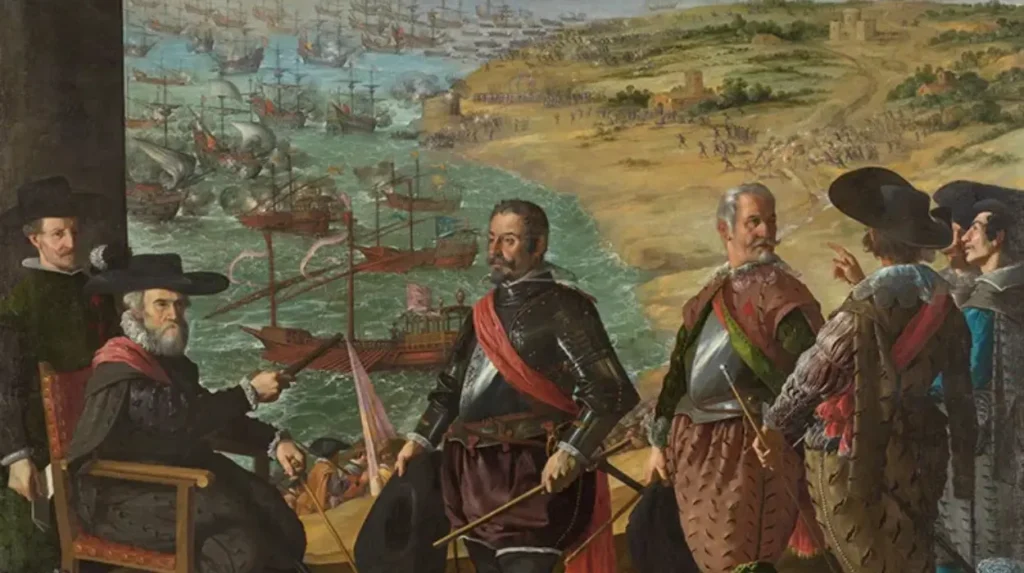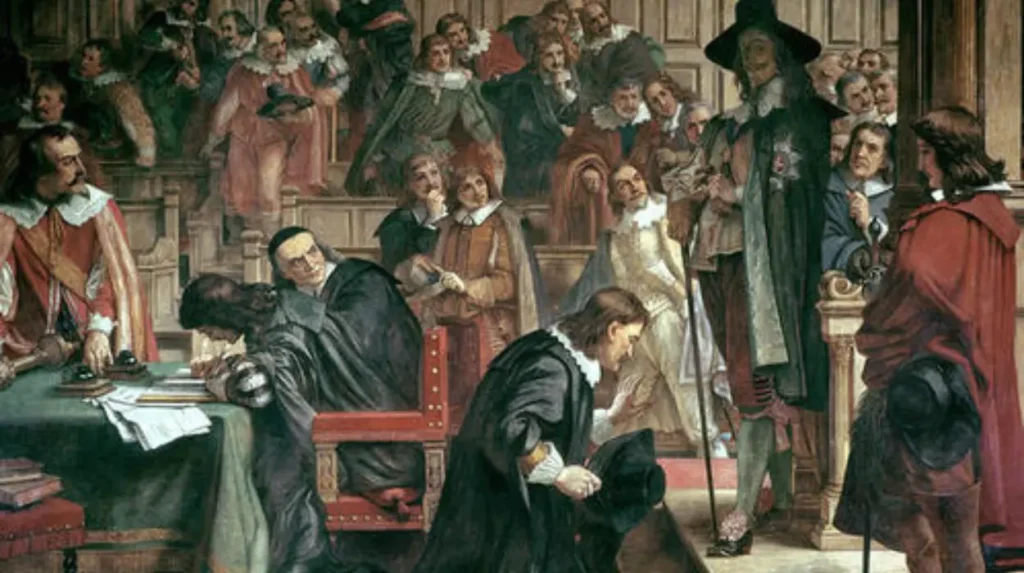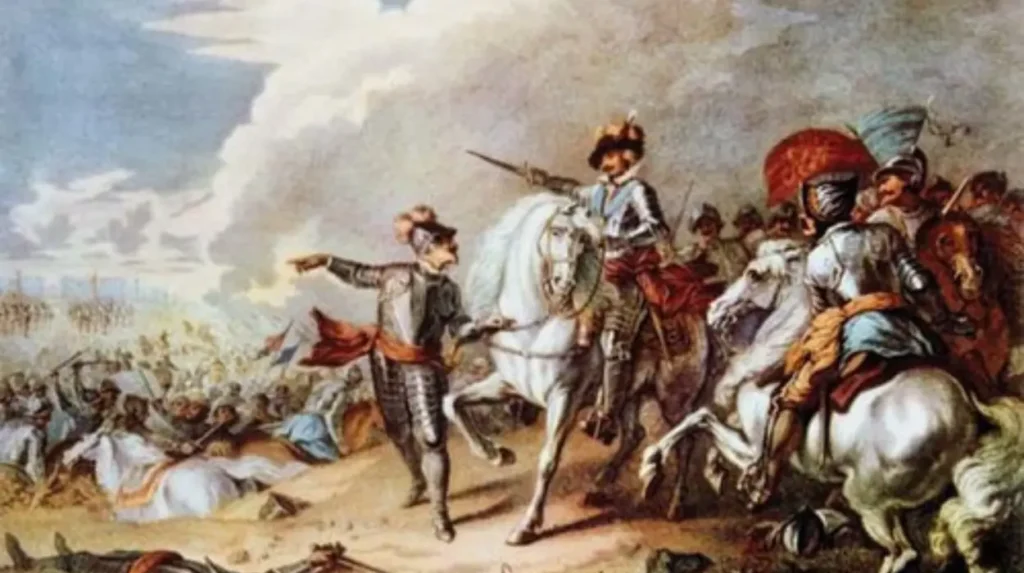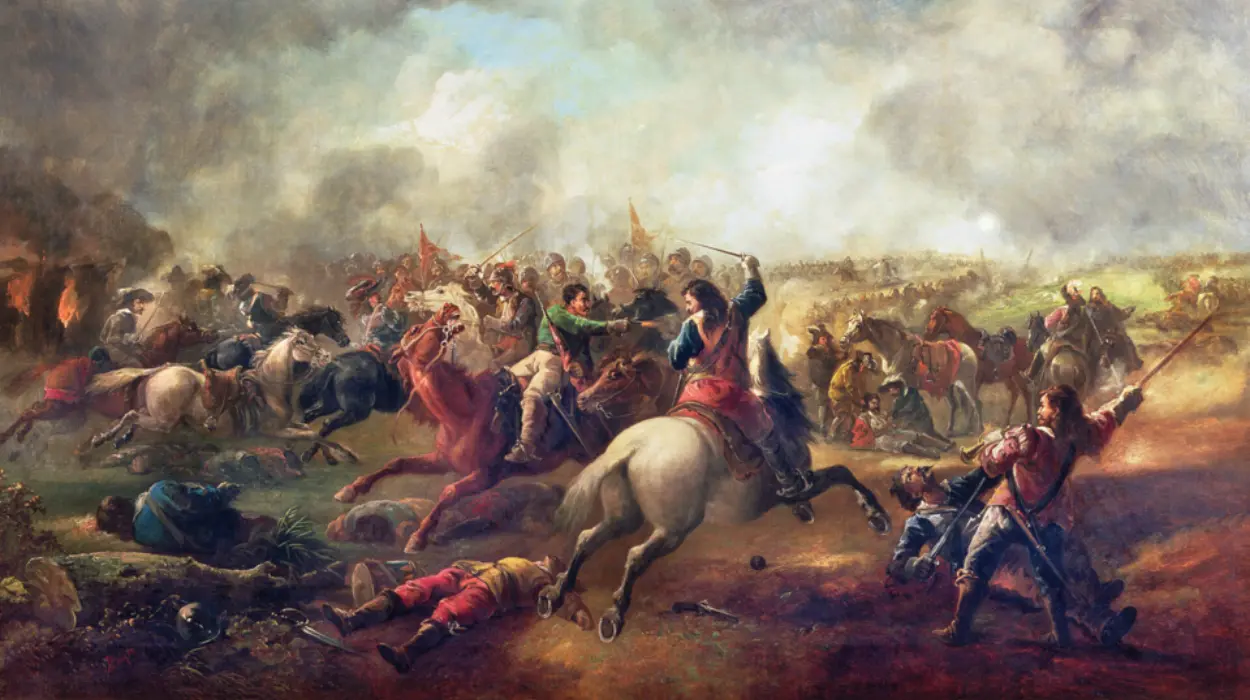The English Civil War of 1642 was one of the most dramatic events in British history, but it was not simply an outbreak of violence; it was a culmination of years of political, religious, social, and economic tensions. Andrew Marr describes civil war as “a place where everybody is in disagreement, where loyalties, choices, and even social relationships have been spectra of doubt.” It was a very important moment in English history when monarchy, Parliament, and power in England were significantly changed. To understand why the civil war happened, we need to look at the fundamental reasons and the historical context that ultimately caused this tremendous conflict.
Political Causes of the English Civil War
The continued contention between the parties was the primary cause of the civil war. Instead of being a dictator, King Charles believed in the “divine right of kings,” as if he had been chosen by God to reign without interference from others. On the other hand, Parliament contended that it should limit the royal power, being a partner in government. This came to a point where both could not compromise on what either of them considered to be the right understanding of authority.
Charles I dismissed Parliament in 1629, during which time he ruled without it for eleven years. This period has come to be called “The Personal Rule.” During it, he managed to raise money by means most people did not approve of: forced loans and fines. Many people felt neglected and oppressed without the voice of Parliament. Charles’s methods of governance seemed despotic and dismissive of conventional parliamentary rights; hence, this created resentment against him.

Religious Cause of the English Civil War
One of the primary reasons for the Civil War was religion. Anglicans, Puritans, and Catholics split England among them. Many Protestants worried about a resurgence of Catholic power and were disturbed when Charles I wed Henrietta Maria of France, a Catholic princess. Puritans, who preferred more basic forms of worship, found his efforts at religious uniformity offensive. Distrust and suspicion throughout the kingdom arose from these divisions.
Charles I met opposition in Scotland as well, where he tried to enforce the English Book of Common Prayer in 1637. The Scots turned it down, considering it as a threat to their Presbyterian heritage. The Bishops’ Wars followed from this, consuming the king’s resources and prompting Parliament to be recalled in 1640. Parliament exploited this chance to question his power, worsening the tensions between monarch and legislature.
Financial Causes for the English Civil War
Charles raised funds during his Personal Rule via taxes, including “ship money,” first intended for coastal defense but afterward applied nationally. Many people found this unjust, especially given that it was implemented without the permission of Parliament. These demands were opposed by wealthy landowners and merchants, which grew unhappiness with the crown.
Charles I’s engagement in expensive overseas conflicts and the Bishops’ Wars against Scotland left the crown extremely in debt. He used contentious financial means to fund these wars. Unrest was brought on by citizens’ financial burden together with failing crops and growing poverty. Economic hardship exacerbated the list of grievances that motivated many people to support Parliament against the king.
Social Causes for the English Civil War’s
The English people were growing more exasperated with both theological disputes and financial hardship. Many regular people resented the king’s authority and accountability failure. The rich elite preserved their rights while commoners struggled financially; class tensions also escalated. This general discontent made society more receptive to revolt.
New political ideas on freedom and government were gaining ground early in the 17th century. The idea that Parliament embodied the people and had more power contested the long-established absolute monarchy. Both the educated and the general people were affected by the concepts disseminated via sermons, debates, and leaflets all across England. These societal movements helped to spark the eventual outbreak of war.

Historical Context and Long-Term Impact
The English Civil War indicated that absolute monarchy in England was in decline. It showed that a king could not govern alone for long without Parliament. The civil war, which led to the execution of Charles I in 1649 and abolished monarchy temporarily, has now set the scene for the future struggle that would define the shape of the power balance between monarchy and Parliament.
The Rise of Parliamentary Power
The war certainly charged Parliament as far as English politics was concerned. Even if the monarchy were to be restored under Charles II in 1660, the relationship between the crown and Parliament would never be the same. By laying the foundations for what would be recognized as later reforms, the Civil War opened the way for a constitutional monarchy to be formally established through developments such as the Glorious Revolution of 1688.
Social and Cultural Changes
There was much social dislocation; homes were torn apart, communities disbanded, and new political and ecclesiastical movements introduced. Some, such as the Levellers, were preaching the most radical forms of equality rights, making them susceptible to later democratic thinking. The Civil War was neither simply a struggle for power nor, importantly, a turning point in the formation of modern British society.

The Outbreak of the English Civil War
By 1642, there were two sides to the English Civil War: those loyal to the king (Royalists (Cavaliers)) and those who wanted the parliamentary machine to supersede the king’s power (Parliamentarians (Roundheads)). Both sides created armies, and the first significant battle occurred at Edgehill in October of 1642. The English Civil War had officially begun.
After Edgehill, the two sides attempted negotiation many times, but neither side was willing to abandon their fundamental beliefs. Charles I would not abandon his idea of divine right, and Parliament was committed to limiting the king’s power. After so long fighting over deep-seated mistrust between both sides, a compromise was impossible. War was inevitable.
Why Did the Civil War Begin?
A number of political, religious, economic, and social reasons came together to explain why the English Civil War started. Ultimately, Charles I’s refusal to compromise regarding his authority and Parliament’s determination to constrain the power of the king converged to create an inescapable conflict. Religious divides, financial strains from the cost of wars, and the emergence of political ideas also played a role.
The war was not merely a contest between king and Parliament; it was a political struggle that changed the entire structure of English government. The real legacy of the war will be the shift towards parliamentary power and away from the nature of absolute monarchy, which shaped Britain’s experience for many generations.


